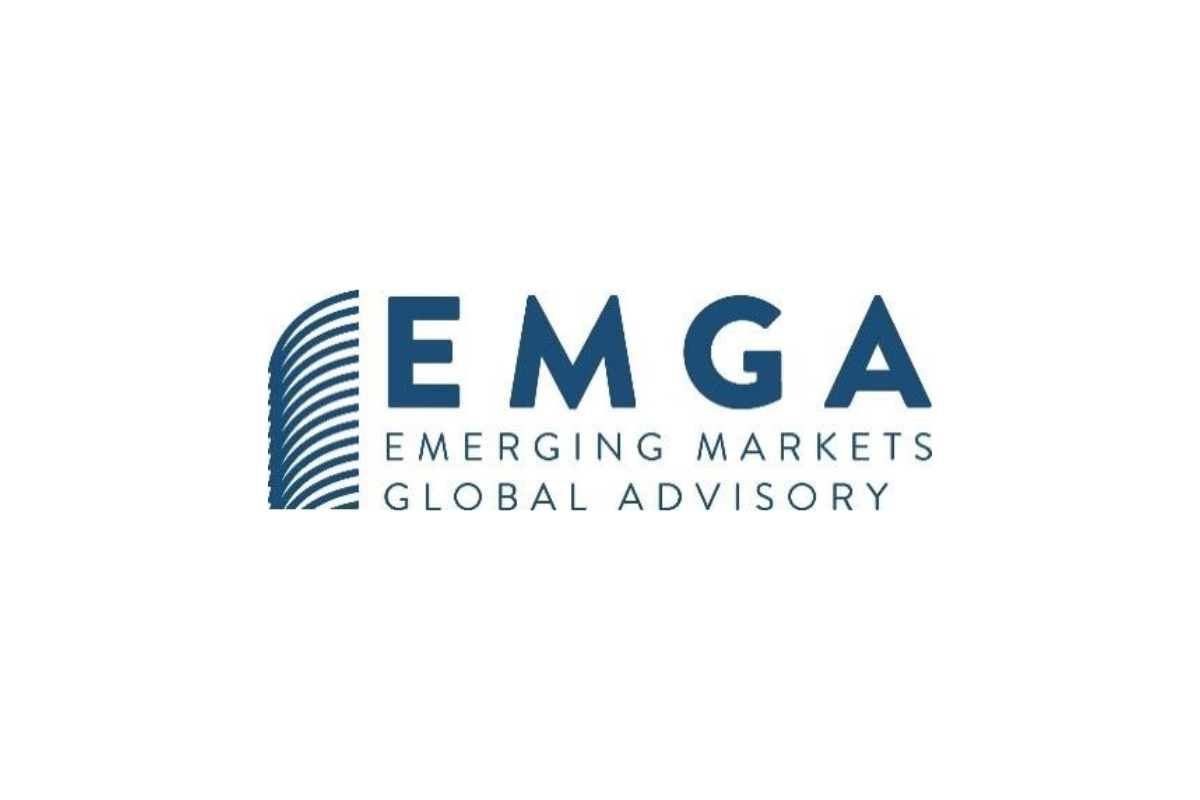Fintech
Revolutionizing Play and Pay: Fintech Leader Ibanera Redefines Financial Dynamics for the Gaming Sector

Ibanera, an online fintech institution, announces an exciting array of gaming-focused financial services- a fully optimised suite of applications designed to align with the evolving financial paradigms within the global gaming industry.
In the realm of electronic gaming, where a staggering $400 billion was amassed in 2023, poised for sustained growth, a transformative shift in revenue generation is underway. The prosperity of contemporary games is intricately linked to in-app purchases, compelling game developers and publishers to explore innovative economic models. This exploration extends into the realm of tokenized digital assets within games, tradable assets stemming from in-app transactions, and unprecedented opportunities for professional gamers to prosper through a sophisticated play-to-earn framework
Ibanera’s strategic initiative materializes through a portfolio of services, notably featuring the introduction of PORTL, a solution meticulously designed for buying and selling digital assets. Moreover, Ibanera extends white-label solutions to gaming entities, facilitating the seamless integration of embedded payment tools for web3 game developers. The compatibility with blockchain and provision of multi-currency accounts underscore Ibanera’s unwavering commitment to delivering a suite of services that transcend conventional financial norms.
This venture represents a substantial investment for Ibanera, propelled by the strategic vision of CEO Michael Carbonara. In his statement, Carbonara remarked, “We are addressing the pressing need for heightened functionality within gaming companies. The pace of evolution in the gaming industry has surpassed the capacities of traditional banking institutions.”
The company’s foray into gaming-focused financial services signifies a significant milestone at the intersection of fintech and gaming, positioning the institution as a vanguard in an industry undergoing unprecedented transformation. The suite of applications not only addresses current demands but also strategically anticipates and caters to the future financial intricacies that will define the gaming experience.
Fintech
EMGA arranges US$ 30M debt finance for Uzbekistan’s Ipak Yuli Bank

Emerging Markets Global Advisory LLP (EMGA) announces they have completed their first transaction in Uzbekistan securing US$ 30M from the OPEC Fund for International Development (OPEC Fund).
Commenting on the transaction, Ipak Yuli’s Chairman Mr.Saydakhmedov Saidabror said, “We are pleased to be the first private bank in Uzbekistan to sign an agreement with the OPEC Fund. This is an important step in supporting the development of the Micro, Small, and Medium-Sized Business (MSME) sector in our country. We share common values with the OPEC Fund in fostering entrepreneurship and are confident that this partnership will lay the foundation for expanding our cooperation in the future, contributing to the further development of the economy and creating new opportunities for businesses.”
EMGA’s Head of Investment Banking and Managing Director Sajeev Chakkalakal said, “In spite of a challenging global macroeconomic environment, we are pleased to structure this transaction and facilitate Ipak Yuli’s continued vision to supporting SMEs in Uzbekistan, as well simultaneously help expand the presence of OPEC Fund’s on-going operations in the region.”
EMGA’s Head of Operations and Managing Director Jeremy Dobson added, “EMGA is delighted to have secured this financing for Ipak Yuli, the operation will further diversify their funding base and bodes well for the future.”
OPEC Fund President Abdulhamid Alkhalifa said: “Our partnership with Ipak Yuli Bank reflects our targeted approach to support Uzbekistan’s private sector transformation. By facilitating access to finance for businesses, including those led by women, we are helping unlock their potential to contribute to the country’s sustainable economic growth. This partnership is not just about financing—it is about supporting a more dynamic and inclusive private sector that fosters economic opportunities and enhances the well-being of communities across Uzbekistan.”
Ipak Yuli is a joint-stock commercial-innovation bank in Uzbekistan. It was established in December 1990 and provides banking services to individual entrepreneurs, small and medium-sized businesses, state organizations and institutions, and to corporate customers. In addition to a wide range of banking services and credit operations, the bank carries out leasing, factoring and project financing operations, operations with cash and non-cash currency funds, operations on the stock market on behalf of clients
The OPEC Fund for International Development (the OPEC Fund) is the only globally mandated development institution that provides financing from member countries to non-member countries exclusively. The organization works in cooperation with developing country partners and the international development community to stimulate economic growth and social progress in low- and middle-income countries around the world. The OPEC Fund was established in 1976 and has committed over US$27 billion to development projects in over 125 countries with an estimated total project cost of more than US$200 billion. The OPEC Fund is rated AA+/Outlook Stable by Fitch and AA+, Outlook Stable by S&P. Our vision is a world where sustainable development is a reality for all.
Emerging Markets Global Advisory LLP (EMGA), with offices in London and New York, helps financial institutions and corporates seeking new debt or equity capital. EMGA’s multi-national team combine the decades of experience necessary to complete transactions on behalf of their clients within the world’s emerging markets and frontier economies, including Uzbekistan which remains a key market. With a proven track record in capital formation and strategic advisory throughout diverse economic cycles, EMGA continues expanding its geographic reach and service offering, solidifying its place in the market as one of the industries pre-eminent emerging markets focused niche investment banks.
The post EMGA arranges US$ 30M debt finance for Uzbekistan’s Ipak Yuli Bank appeared first on News, Events, Advertising Options.
Fintech
Fintech Pulse: Your Daily Industry Brief (PayPal, Apple Pay, Google Wallet, Introspective Market Research, Deel, Kingdom Advisors, Basta Pay)

A Digital Revolution: The Rise of Wallets and the Evolution of Payments
The fintech landscape is undergoing a transformative shift as digital wallets become the epicenter of modern payments. No longer just a convenient alternative, they are now reshaping the way consumers and businesses transact globally. According to a recent analysis by Visual Capitalist, digital wallets accounted for over 50% of global e-commerce payments in 2023. This growing trend indicates not just convenience but a shift in consumer trust towards digital-first financial solutions.
Companies like PayPal, Apple Pay, and Google Wallet have been leading the charge, but emerging players are bringing unique innovations to the table. Startups are focusing on regional solutions tailored to local markets, enhancing user experience and adoption rates. These wallets are not just limited to payments; they’re becoming all-encompassing financial ecosystems offering credit, investments, and savings, driving financial inclusion worldwide.
Source: Visual Capitalist
Fintech Blockchain Market Surges: $129.73 Billion by 2032
Blockchain technology continues to carve a niche in fintech, with predictions indicating exponential growth. The fintech blockchain market is projected to reach USD 129.73 billion by 2032, growing at a staggering CAGR of 47.92%, as reported by Introspective Market Research. This rise is fueled by increased adoption across banking, insurance, and investment sectors, which are leveraging blockchain for enhanced transparency, security, and efficiency.
Financial institutions are moving beyond pilot projects and into large-scale blockchain implementations, transforming back-office processes, cross-border payments, and customer identity management. The technology’s potential to cut operational costs and streamline complex processes is attracting significant investment, setting the stage for widespread industry disruption.
Source: Introspective Market Research
Deel Strengthens European Payments Through Atlantic Money Acquisition
Global HR and payments platform Deel is making waves with its strategic acquisition of Atlantic Money, a European cross-border payment service provider. This move is part of Deel’s broader effort to enhance its payment infrastructure across Europe, facilitating faster, more cost-effective international transactions.
Deel’s aggressive expansion strategy reflects a growing demand for seamless global payment solutions as remote work and international payroll management gain momentum. The acquisition not only expands Deel’s service offerings but also solidifies its position in the competitive European fintech market, creating a robust ecosystem for businesses of all sizes.
Source: FinTech Futures
$300 Million Infusion: CFD Companies Expand with Kingdom Advisors Partnership
The contract for difference (CFD) market is seeing a significant boost with a $300 million increase in assets under administration (AUA). This development comes alongside an expanded partnership with Kingdom Advisors, a leading network of Christian financial professionals. This strategic alliance aims to integrate faith-based financial principles with cutting-edge fintech solutions, creating a niche market for ethically-minded investors.
The infusion of new capital is expected to fuel further innovation in trading platforms, offering enhanced features, better security, and more personalized investment options. As faith-based investing grows, fintech firms are recognizing the potential of blending ethical values with high-tech financial tools, catering to a diverse clientele.
Source: PR Newswire
Basta Pay Sets Ambitious Launch for March 2025
Basta Pay, a new fintech platform, is gearing up for its official launch by March 2025. Positioned as a comprehensive financial solution for both individuals and businesses, Basta Pay aims to revolutionize online and mobile banking by integrating innovative features like AI-driven financial planning, real-time analytics, and blockchain-based security.
With a focus on user-friendly interfaces and robust security measures, Basta Pay is preparing to enter a crowded market with a unique value proposition. The platform’s anticipated launch signals the ongoing evolution of digital banking solutions tailored to modern consumer needs, promising to be a game-changer in the fintech landscape.
Source: The Paypers
Conclusion
From digital wallets transforming payment methods to blockchain redefining the core of financial systems, fintech is at the forefront of technological advancement. With strategic acquisitions, significant market investments, and innovative new platforms on the horizon, the industry is poised for unprecedented growth. Keeping an eye on these developments will be crucial as fintech continues to evolve, shaping the future of global finance.
The post Fintech Pulse: Your Daily Industry Brief (PayPal, Apple Pay, Google Wallet, Introspective Market Research, Deel, Kingdom Advisors, Basta Pay) appeared first on News, Events, Advertising Options.
Fintech
Banking and Capital Markets: Navigating a Complex Future

Curated in collaboration with the London School of Economics and Political Science (LSE)
The global financial industry stands at a pivotal juncture, facing a rapidly evolving landscape shaped by technological disruption, sustainability mandates, and geopolitical uncertainties. The end of prolonged accommodative monetary policies has ushered in an era of increased scrutiny, regulatory tightening, and heightened demand for innovation. At the same time, financial technology (fintech) continues to transform the sector, driving new opportunities and challenges for traditional banking systems.
This article delves into the strategic issues currently defining Banking and Capital Markets. Drawing from expert insights curated by Lutfey Siddiqi, Visiting Professor-in-Practice at LSE, it examines the dynamic risk environment, emerging technology trends, shifts in banking business models, and the growing focus on sustainability and talent development.
Key Issues Influencing Banking and Capital Markets
- The Financial Risk Landscape: Heightened geopolitical tensions and regulatory demands are reshaping the industry.
- Financial Technology: Emerging technologies such as artificial intelligence (AI) and blockchain offer potential but also pose significant implementation challenges.
- Banking Business Models: Institutions are adopting diverse strategies to navigate competition and shifting market demands.
- Financial Talent: Attracting the next generation of banking professionals requires a clear purpose and forward-thinking policies.
- Sustainability and Finance: Balancing environmental and social goals with immediate business priorities is a growing challenge.
1. Latest Insights: Shifting the Banking Paradigm
Experts highlight the profound challenges and opportunities facing financial institutions today. From geopolitical volatility to advances in fintech, the banking landscape demands unprecedented agility. Recent developments include:
- Monetary Policy Adjustments: China’s central bank explores easing policies to boost investment.
- Regulatory Scrutiny: Global banking rules, such as Basel 3.1 reforms, are under review, signaling potential shifts in global supervision.
- Financial Inclusion: Updates from the Financial Action Task Force (FATF) aim to balance anti-money laundering standards with broader access to financial services.
These trends emphasize the need for financial institutions to anticipate disruptions while fostering resilience and innovation.
2. Strategic Context: Transforming Banking in a High-Stakes Era
2.1 The Financial Risk Landscape
Banks are grappling with an increasingly volatile environment characterized by geopolitical tensions, regulatory reforms, and market disruptions. The end of ultra-loose monetary policies has highlighted weaknesses in traditional funding models, exemplified by the high-profile collapses of Silicon Valley Bank and Credit Suisse in 2023.
Regulators are tightening oversight, expanding their focus to include non-bank institutions and fintech companies. Additionally, rising geopolitical tensions demand localized data operations, robust cybersecurity measures, and new approaches to global strategy.
Key takeaway: In an age of uncertainty, resilience and stability are essential.
2.2 Financial Technology
The Fourth Industrial Revolution continues to reshape banking through advancements like AI, blockchain, and quantum computing. However, challenges remain, such as limited real-world blockchain applications and increasing cybersecurity risks tied to digitalization.
Financial institutions must adopt technology thoughtfully, focusing on solutions that address specific operational pain points and align with organizational goals. Balancing efficiency with contingency planning for outages and cyber threats is paramount.
Key takeaway: Tech adoption must prioritize practicality, security, and alignment with purpose.
2.3 Banking Business Models
Global trends are driving a diversification of banking models. Some institutions are scaling back operations in unprofitable markets, while others are leveraging acquisitions or digital innovation to expand. The rise of big tech competitors—armed with vast behavioral data—adds a new layer of complexity to the competitive landscape.
Emerging trends include:
- Consolidation of corporate and private banking services.
- Strategic retreats from costly markets, such as HSBC’s exit from US retail banking.
- Big tech firms offering financial services as data-driven loss leaders.
Key takeaway: Differentiation and adaptability are critical in a fragmented, competitive market.
2.4 Financial Talent
The banking sector faces a mounting talent crisis, particularly among younger generations who view the industry as outdated or misaligned with their values. To attract top talent, banks must redefine their purpose and emphasize their commitment to sustainability, innovation, and career growth opportunities.
Surveys indicate that young professionals seek workplaces offering training, flexibility, and inclusive leadership. Reskilling initiatives and a focus on digital expertise will also be key to preparing employees for the future.
Key takeaway: A compelling vision for the future of banking is essential to attract and retain top talent.
2.5 Sustainability and Finance
Sustainability has become a focal point for the financial industry, driven by growing demand for ESG (Environmental, Social, and Governance) initiatives. However, backlash against greenwashing and tokenism has led banks to reevaluate their approaches.
Balancing short-term priorities like energy security with long-term goals like combating climate change requires bold leadership. Opportunities abound in areas such as carbon trading, green bonds, and sustainability-linked investment products. However, success demands authenticity and a commitment to systemic change.
Key takeaway: Embedding sustainability into core operations is vital for long-term success.
Transformation Maps: A Strategic Tool for Leaders
This analysis leverages the World Economic Forum’s Strategic Intelligence Transformation Maps, which provide an interconnected view of global trends and challenges. These tools enable leaders to explore key topics, such as cybersecurity, fintech, and sustainability, and understand how they shape the future of Banking and Capital Markets.
Conclusion
The financial industry’s journey through this transformative era requires agility, innovation, and a deep commitment to purpose. From adapting to geopolitical tensions to embracing sustainability and nurturing top talent, financial institutions must strike a delicate balance between tradition and progress.
By leveraging technology, redefining business models, and embedding ESG principles into their strategies, the sector can navigate today’s challenges and build a resilient, forward-thinking future.
For more insights and resources, visit the World Economic Forum’s Strategic Intelligence platform.
The post Banking and Capital Markets: Navigating a Complex Future appeared first on News, Events, Advertising Options.
-

 Fintech7 days ago
Fintech7 days agoFintech Pulse: A Daily Dive into Industry Innovations and Developments
-

 Fintech6 days ago
Fintech6 days agoFormer MD of SUI Foundation, Greg Siourounis, Joins xMoney Global as Co-Founder and CEO to build MiCA-Regulated Stablecoin Platform
-

 Fintech4 days ago
Fintech4 days agoBanking and Capital Markets: Navigating a Complex Future
-

 Fintech PR5 days ago
Fintech PR5 days agoYunoJuno Recognised as Best International Contractor Provider, Revolutionising Global Freelance Management
-

 Fintech PR4 days ago
Fintech PR4 days agoNoble Corporation plc announces changes to its share capital including share repurchases for the month of November 2024
-

 Fintech PR6 days ago
Fintech PR6 days agoLONGi and IUCN jointly release the Initiative of Advancing Climate Action and Biodiversity Conservation with Photovoltaic
-

 Fintech PR6 days ago
Fintech PR6 days agoMobile Wallet and Payment Market Skyrockets to $71.28 Billion by 2031 Dominated by Tech Giants – Paytm E-Commerce Pvt Ltd, Telefonaktiebolaget LM Ericsson and Early Warning Services, LLC | The Insight Partners
-

 Fintech PR6 days ago
Fintech PR6 days agoADFW Unveils Full Agenda for 2024 Edition, One of the Most Impactful Financial Gatherings of the Year
















